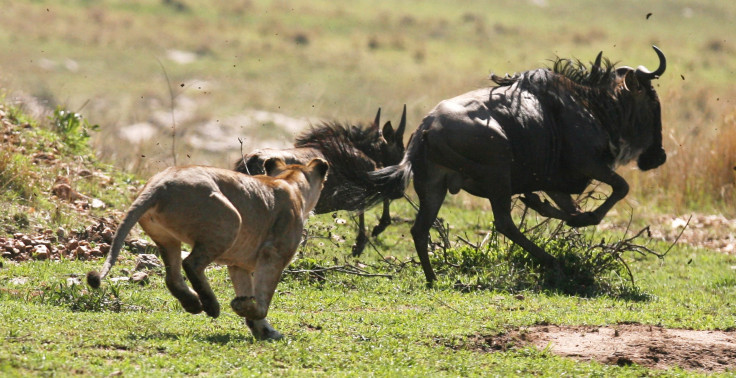A Hidden Natural Law Might Explain Why There Aren't More Lions In The World

Intuition suggests that if an ecosystem is rich in prey, it should also abound in predators that feed on them. So, if you double the number of gazelles in a forest, for instance, it should double the number of lions too.
Nature, it turns out, doesn’t work like that.
“Until now, the assumption has been that when there is a lot more prey, you’d expect correspondingly more predators,” Ian Hatton, a biologist at Canada’s McGill University and the lead author of a study published Friday in the journal Science, said in a statement.
However, after conducting an analysis of more than a thousand studies in more than 1,500 locations worldwide -- including African ecosystems like the Serengeti and the Kalahari -- Hatton and his colleagues found that the faster you add prey to an ecosystem, the slower predators’ numbers grow.
“No matter where they are in the world, the ratio of predators to their prey is greatly reduced. This is because with greater crowding, prey species have fewer offspring for every individual,” Hatton said, in the statement. “In effect, the prey’s rates of reproduction are limited, which limits the abundance of predators.”
Predators tend to target the young and the relatively defenseless members of the prey population, and, if the prey’s rate of reproduction is reduced, there would be less food available for the predators.
While this finding itself is surprising, the researchers were even more intrigued by another observation. Not only can the ratio of predators to prey be predicted by the same mathematical function across all ecosystems, the growth patterns at the level of the ecosystems are also strikingly similar to the growth patterns in individuals, such as the rate of growth of cells in an organism.
The recurrence of this underlying pattern might just be our first glimpse of an as-of-yet-undiscovered fundamental law of nature -- one that allows us to make “ecosystem-level predictions from individual-level data.”
“The discovery of ecosystem-level scaling laws is particularly exciting,” co-author Michel Loreau, adjunct professor in McGill University’s biology department, said in the statement. “Their most intriguing aspect is that they recur across levels of organization, from individuals to ecosystems. … It seems that some basic processes reemerge across levels of organization, but we do not yet fully understand which ones and why.”
© Copyright IBTimes 2024. All rights reserved.






















